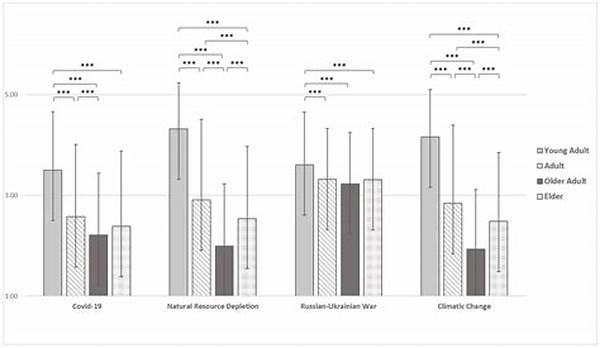The phenomenon of natural resource depletion from warfare constitutes a significant concern for environmental sustainability and global peace. Warfare often results in the catastrophic exploitation of natural resources, leaving lasting imprints on the environment. This article discusses various facets of natural resource depletion arising from warfare, recognizing the dire need for global awareness and intervention. It delves into the multifaceted implications of resource exhaustion, exploring the intersection of conflict, environmental degradation, and socio-economic instability.
Historical Context and Impact
Natural resource depletion from warfare has historical precedence, with conflicts primarily orchestrated over territorial and resource control. Throughout history, warfare has accelerated resource depletion, as armed conflicts necessitate vast quantities of materials and energy. Forests are cut down for military infrastructure, water resources are diverted or contaminated, and fossil fuels are consumed at unparalleled rates. The environmental consequences are severe, disrupting ecosystems and amplifying biodiversity loss. Additionally, the socio-economic aftermath further exacerbates the situation, as communities struggle with resource scarcity and economic recovery. This historical context underlines the persistent link between warfare and environmental degradation, thereby necessitating strategic policy frameworks to mitigate resource exploitation during conflicts.
Environmental Consequences
Natural resource depletion from warfare exacts a heavy toll on the environment. The destruction of ecosystems is inevitable, leading to loss of biodiversity and habitat. It causes irreversible damage to flora and fauna, which thrive on the delicate ecological balance. Air and water pollution arise due to the use of chemical weapons and military vehicles.
Furthermore, soil degradation is a critical outcome of war-induced resource depletion. The displacement of fertile topsoil and contamination with hazardous substances render lands barren. This disrupts agricultural production and food security, pushing communities toward poverty and starvation. Over time, this degradation contributes to a reduction in arable land, exacerbating global food shortages.
Natural resource depletion from warfare also exacerbates climate change. The emission of greenhouse gases and destruction of carbon sinks such as forests intensify global warming. This complex interaction between warfare and the environment necessitates an urgent reevaluation of military strategies and resource management to ensure environmental sustainability.
Socio-Economic Ramifications
The socio-economic ramifications of natural resource depletion from warfare are profound and long-lasting. Resource scarcity brought about by warfare disrupts local economies, displacing populations and triggering mass migrations. This displacement often leads to inter-community tensions, exacerbating existing conflicts and creating new ones.
Further, the reconstruction efforts following warfare impose a heavy economic burden on nations. The diversion of financial resources toward rebuilding infrastructure and addressing resource shortages depletes national coffers. This affects public services such as healthcare and education, impeding societal progress and resilience.
Moreover, natural resource depletion from warfare influences global economic stability. Vital trade routes might be disrupted, leading to fluctuations in commodity prices. The resultant economic instability affects both developed and developing nations, underscoring the interconnected nature of modern economies in the face of conflict-induced resource depletion.
Mitigation Strategies
Addressing natural resource depletion from warfare necessitates a multi-faceted approach. First, international organizations and governments must prioritize diplomatic resolutions to conflicts to prevent resource-driven wars. Establishing stringent regulations on the extraction and use of resources during conflicts can mitigate environmental damage.
Implementing sustainable military practices is crucial. This includes shifting to renewable energy sources and minimizing environmental footprints. Military interventions must be accompanied by comprehensive environmental assessments to predict potential ecological outcomes.
Education and advocacy are essential components of mitigation strategies. Raising global awareness about the environmental impact of warfare can drive international policy changes. By understanding the consequences, nations can collaborate to create frameworks that prioritize resource conservation and environmental stability in conflict scenarios.
Legal Frameworks and International Cooperation
The establishment of robust legal frameworks is critical in addressing natural resource depletion from warfare. International environmental laws must be tailored to discourage the exploitation of resources in conflict zones. Sanctions and penalties for violators of such laws might deter resource aggression.
Moreover, international cooperation is paramount. Nations must unite to develop policies that address the root causes of resource-driven conflicts. Collaboration can facilitate knowledge sharing on best practices for resource management in war-torn regions, aiding global efforts to curb resource depletion.
International treaties aimed at environmental protection during warfare should be strengthened and enforced. These treaties must be adaptable to address emerging challenges and technologies associated with modern warfare, ensuring comprehensive protection of natural resources.
Technological Innovations
Technological innovations play a pivotal role in combating natural resource depletion from warfare. Advancements in remote sensing and satellite imaging offer insights into resource distribution and usage in conflict areas. This data can inform strategies to prevent over-extraction and monitor ecological impacts.
Additionally, the development of eco-friendly military technology can reduce environmental harm. Innovations such as biodegradable materials and energy-efficient vehicles contribute to minimizing the ecological footprint of military operations. Investing in technology is vital for sustainable warfare practices.
Moreover, research into alternative resources is essential. By exploring substitutes for traditional resources, nations can decrease their reliance on war-prone materials. This shift can reduce the impetus for resource-driven conflicts, promoting sustainable resource usage even amidst warfare.
Summary and Way Forward
In summary, the natural resource depletion from warfare presents a multifaceted challenge that demands urgent attention. The environmental degradation, socio-economic instability, and geopolitical tensions resulting from resource exploitation necessitate a paradigm shift in conflict management and resource governance. Acknowledging the profound impacts on ecosystems and communities, the international community must prioritize sustainable practices and cooperative frameworks to address this pressing issue.
Moving forward, comprehensive strategies must be adopted to mitigate natural resource depletion from warfare. This involves diplomatic resolutions to conflicts, the establishment of robust legal frameworks, and the promotion of sustainable military practices. Leveraging technological innovations and fostering international cooperation will be essential to curbing resource-driven conflicts and ensuring environmental sustainability. As global interdependence grows, the importance of collaborative efforts in preserving natural resources during warfare cannot be overstated, driving home the need for a unified global approach against environmental degradation due to conflict.





